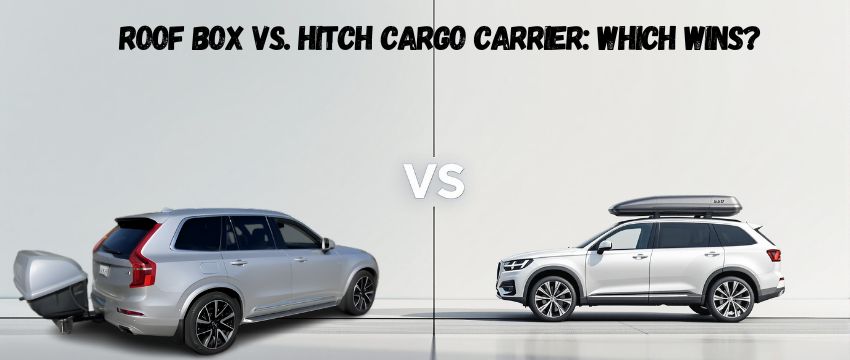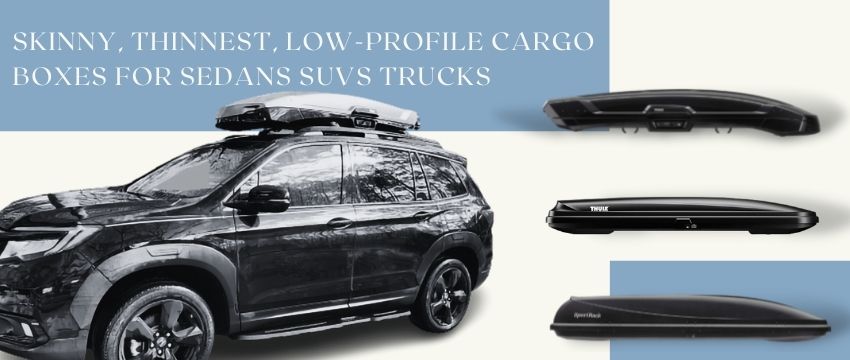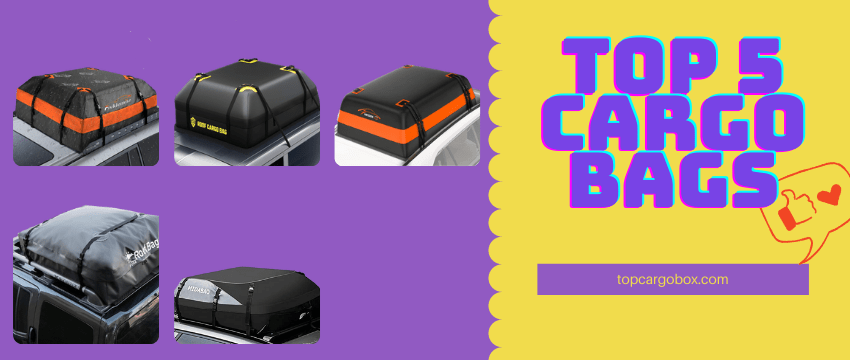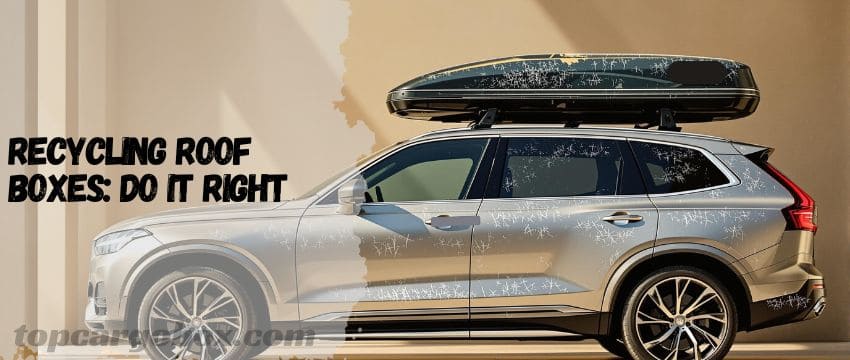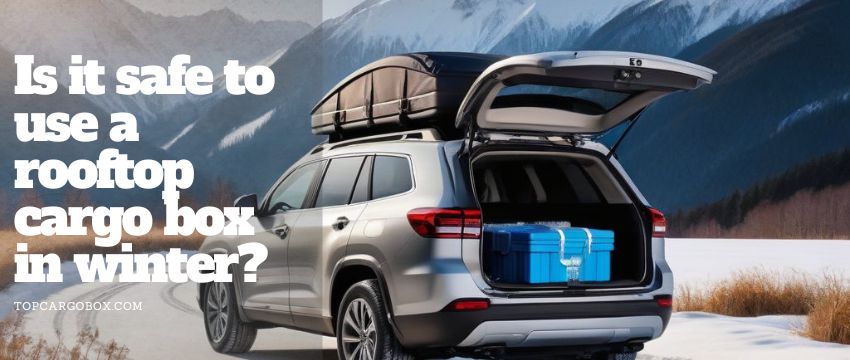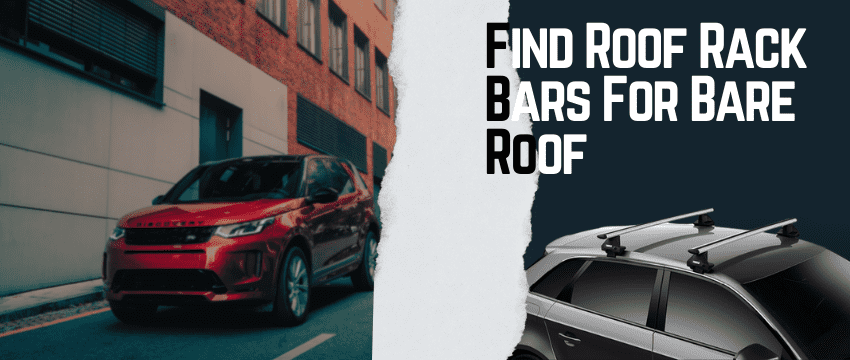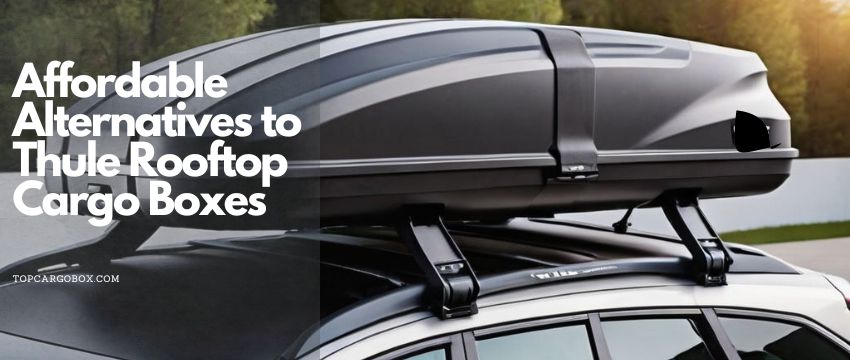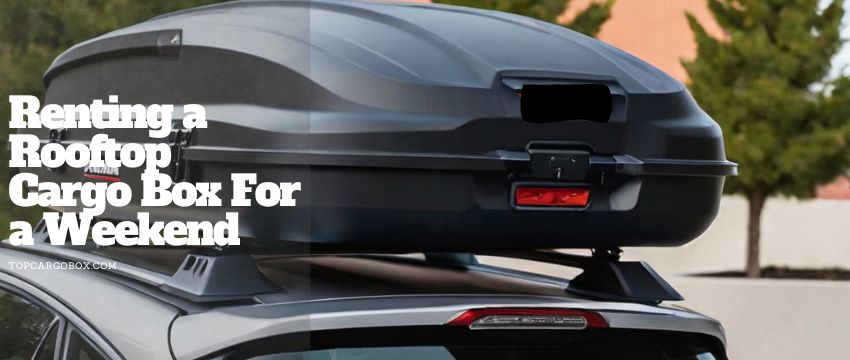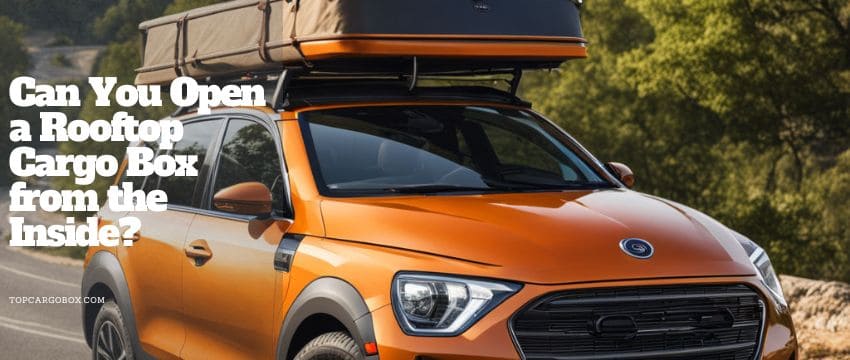Hey there, adventure junkies! Staring at that trunk bursting at the seams and muttering, “Where’s all this gonna go?”—sound familiar? Trust me, you’re in good company. Picking between a roof box and a hitch carrier is like debating whether to grab a latte or cold brew: both get the job done, but your mood (and gear) decides the winner. Let’s cut through the chaos so you’re not stuck playing luggage Jenga at the trailhead.
Roof boxes? They’re like that overachiever friend who’s great at everything—locking in skis, tents, or suitcases while keeping rain out. But here’s the catch: lifting a 50-pound duffel over your head? Nice try, unless you’ve been hitting the gym daily. And don’t forget, slapping one on your ride could drain your gas tank by 20% on highways. For real? Yep—wind drag’s a sneaky thief. Now, hitch carriers? Think of ’em as the chill buddy who’s all about convenience. Slide your bikes or coolers onto a waist-high platform, no grunting required. But hey, if a storm rolls in, your gear’s soaking unless you’ve got a tarp game.
Here’s the kicker: Your car’s setup matters big time. No hitch? Roof box it is—just kiss low-clearance parking garages goodbye. Got a pickup or SUV? A hitch carrier’s a no-brainer for heavy tools or muddy gear. But let’s be honest, 90% of us just wanna stop arguing with our spouse about where the dog’s bed fits. What if there was a smarter way to dodge the stress? Spoiler: There is. Ditch the guesswork and match your pick to your ride’s vibe and your back’s patience level. How’s that for a peace-of-mind upgrade?
What’s Up With Roof Boxes?
Roof boxes are like the Swiss Army knives of car storage—versatile, sleek, and perfect for bulky gear. But are they right for you? Let’s dig in.
How Roof Boxes Work
Alright, let’s talk roof boxes. These things clamp onto your car’s roof rails or crossbars like a giant, weatherproof suitcase for your gear—think duffel bags, skis, or even that tent you swear you’ll use someday. If your sedan or SUV doesn’t have a hitch, this is your go-to move. Most models pack in 12–20 cubic feet of space, which sounds awesome until you’re heaving a 50-pound backpack over your shoulders like you’re training for Mount Everest. How’s that for a workout? Sure, they lock tight and keep rain out, but who actually enjoys playing acrobat every time you need a snack from the trunk?

Here’s the deal: That 12–20 cubic feet range? It’s legit enough for a family of four’s weekend gear—sleeping bags, coolers, the works. But imagine muscling a 40-pound suitcase overhead after a six-hour drive. Give me a break. Your shoulders’ll be screaming, and let’s not even talk about windy highways trying to yank your car sideways. Oh, and if your ride doesn’t have roof rails? Add crossbars to your shopping list, which’ll cost you another 150–400. For real? Yep—it’s like buying shoes and then needing insoles.
Ever tried parking with one of these? Suddenly, every low-clearance garage feels like a trap. Forget drive-thrus or that cute downtown lot with the tiny entrance. And hey, while we’re airing grievances, ever notice how road noise cranks up to 10 once you bolt that box on? Nice try, right? But hey, at least your gear stays dry. Still, ask yourself: Is wrestling a roof box worth it when you could just… not? How do you feel about trading convenience for a few extra cubic feet?
The Good Stuff About Roof Boxes
First off, roof boxes keep your cargo dry and secure, which is legit if you’re driving through rain or snow. They also free up your trunk for passengers or fragile items. Plus, modern designs are aerodynamic, slicing through wind better than strapping a mattress up there. Ever tried fitting a Christmas tree inside your car? Yeah, a roof box saves you from that nightmare.
The Not-So-Good Side
Roof boxes aren’t perfect. They can be a pain to install, especially if your car lacks built-in rails. And let’s talk gas mileage—adding one can drop your MPG by 15–25% on the highway. Ouch. Plus, forget parking garages: that extra height might leave you scraping the ceiling.
Hitch Cargo Carrier Basics
Hitch carriers are the low-key cousins of roof boxes—less flashy, but super practical. Let’s see why they’ve got fans.
How Hitch Carriers Function
These bad boys slide into your vehicle’s hitch receiver, sitting just behind your bumper. They’re basically a platform for coolers, bikes, or heavy tools. The best part? Loading is a breeze since they’re at waist height. No ladder required! Most models support 300–500 pounds, making them perfect for heavy gear.
Why Hitch Carriers Rock
Let’s talk convenience—because who wants to climb a ladder for snacks? With hitch carriers, grabbing your jacket, cooler, or that bag of chips is as easy as popping your trunk. No yoga moves required. Basic models kick off around $150, which is way friendlier on your wallet than most roof boxes. Fair enough? Plus, since these carriers sit low and snug near your bumper, your car’s balance stays chill. Ever taken a sharp turn with a rooftop load? Yeah, not exactly a joyride.
Here’s the kicker: Lower placement means better control. Imagine cruising with heavy gear—tools, bikes, that inflatable kayak you swore you’d use—without feeling like your car’s doing the cha-cha. Hitch carriers keep things grounded, so your steering stays predictable. And let’s be real: 150–500 for a sturdy model feels like a steal compared to roof setups that demand crossbars and a PhD in assembly. How’s that for cutting clutter?
But wait—what about weather? Sure, they’re not waterproof, but toss on a $20 tarp or a heavy-duty bag, and you’re golden. No more hoisting suitcases overhead or worrying about clearance in drive-thrus (we’ve all been there). Need to access your gear mid-trip? Just unhitch the carrier—no grunting, no sweat. What if you could skip the hassle and still haul like a pro? Spoiler: You can. Why wrestle with height when ease is sitting right behind you?
The Downsides
Hitch carriers aren’t weatherproof, so your stuff might get soggy in a storm. They also block your rearview camera and license plate if you’re not careful. And if you’re towing a trailer? Forget it—you’ll need to choose between cargo and your camper.
Fuel Efficiency Face-Off
Who wants to burn cash on gas? Let’s see which option saves your wallet.
Roof Boxes: MPG Vampires
Roof boxes create drag, forcing your engine to work harder. On average, expect to lose 2–5 MPG on the highway. That’s like paying an extra $50–$100 on a cross-country trip. The bigger the box, the bigger the hit. Pro tip: Remove it when you’re not using it!
Hitch Carriers: Sneaky Savers
Hitch carriers sit lower, so they’re more aerodynamic. You’ll still lose MPG, but only around 1–3 MPG. Why? Less wind resistance. Plus, they’re easier to detach when empty, so you’re not hauling dead weight.
Installation and Accessibility
Roof Box: Gym Membership Required
Installing a roof box means wrestling with clamps, bolts, and maybe a ladder. If your car doesn’t have crossbars, add another $200–$500 to your budget. And loading a 50-pound suitcase overhead? Say hello to sore shoulders.
Hitch Carrier: Plug and Play
Most hitch carriers slide into your receiver with zero tools. Even better, loading feels like tossing bags onto a picnic table—no heavy lifting. Just make sure your hitch is rated for the weight!
Security and Weather Woes
Roof Box: Lock It or Lose It
Roof boxes usually come with locks, but let’s be real: if a thief wants in, they’ll get in. Plus, UV rays can crack the plastic over time. On the bright side, your gear stays dry during monsoons.
Hitch Carrier: Easy Pickings
Hitch carriers are less secure—many rely on a simple hitch pin. Rain? Your stuff’s getting drenched unless you wrap it in tarps. Invest in a weatherproof bag or prepare for damp socks.
Cost Comparison
Roof Box: Splurge-Worthy?
Roof boxes range from $400–$1,200, plus crossbars if needed. High-end models last years, though. Think of it as a long-term investment for family trips.
Hitch Carrier: Budget Hero
Hitch carriers start at $150 for basic models. Even heavy-duty ones rarely top $500. Perfect if you’re a casual camper or just need extra space twice a year.
Which Should You Choose?
Go Roof Box If…
- You drive a sedan or SUV without a hitch.
- You need weatherproof storage.
- You’re okay with a minor MPG hit.
Go Hitch Carrier If…
- You hate lifting heavy stuff.
- You want to save money.
- You’re hauling heavy tools or bikes.
Conclusion
So, which one’s the winner? Honestly, it depends on your ride and routine. Roof boxes are sleek and secure but cost more and kill MPG. Hitch carriers are affordable and easy but lack weather protection. Either way, you’ll finally stop playing Tetris with your luggage.
Is a Roof Rack Better Than a Hitch Cargo Carrier?
It depends! Roof racks shine for weatherproofing and security, especially on long trips. But hitch carriers win for heavy loads and easy access. If you’re driving a tall SUV, a roof box keeps your cargo clean. For trucks or low cars, hitch carriers are less hassle.
What Are the Disadvantages of a Roof Carrier?
Roof carriers drag down MPG, block garage access, and require ladder gymnastics to load. They’re also pricey and can damage your roof if installed wrong. Plus, good luck forgetting they’re up there—wind noise is real.
How Much MPG Do You Lose With a Roof Box?
Expect a 15–25% drop on highways—around 2–5 MPG. The bigger the box, the worse the hit. Remove it when empty to save gas. Pro tip: Drive slower to reduce drag!
Do Hitch Cargo Carriers Affect Gas Mileage?
Yes, but less than roof boxes—around 1–3 MPG. Their low profile cuts wind resistance. Still, detach them when unused to avoid being a gas-guzzling decoration.
Is a Hitch Cargo Carrier Worth It?
Totally! They’re affordable, easy to use, and perfect for heavy gear. Just add a waterproof bag for rain. If you road-trip occasionally or haul bikes, it’s a no-brainer.
Our team is creating outdoor-gear relevant articles with passion. If our articles can help you to find the correct solutions for your questions, we will be happy about that. In the content creation process, we usually collect accurate and useful information online or offline to compile our content in an organized way. Consequently, we can guarantee that you can discover some expected answers to your questions. We appreciate your time on our site.

